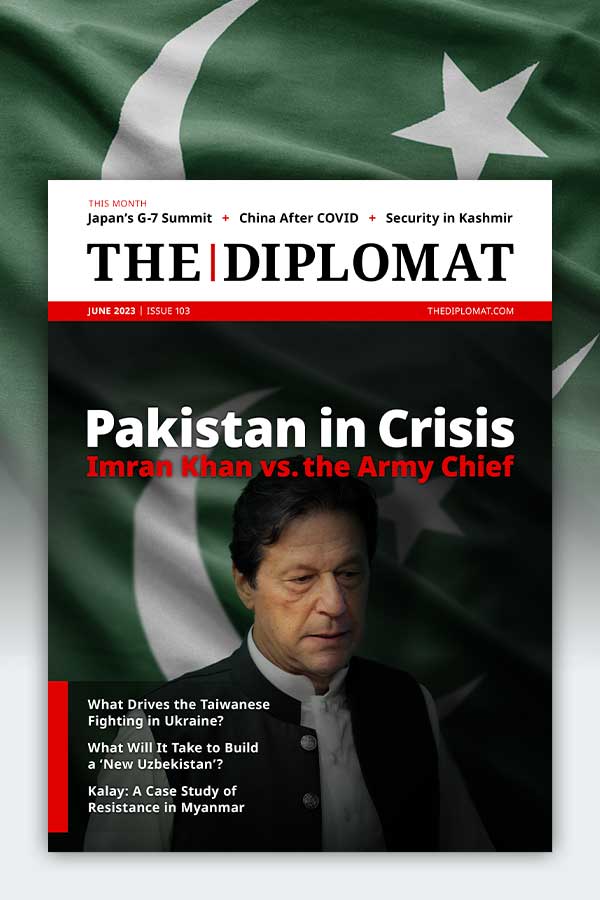| Welcome to the latest issue of Diplomat Brief. This week our top story explores a long-pending legal case accusing U.S. oil giant ExxonMobil of abetting rape, tortute, and other forms of violence against local residents near a plant in Indonesia. We also have an interview with Camilla Pohle, a senior program specialist at the United States Institute of Peace, on the United States’ Pacific Islands strategy. |
| Story of the week | ![[object Object]](https://thediplomat.com/diplomat-brief/2023/vol25/images/feature.jpg) | Society After 22 Years, ExxonMobil Finally Settles Indonesian Human Rights CaseWhat Happened: During the height of Aceh’s separatist conflict in the late 1990s and early 2000s, ExxonMobil hired former Indonesian Army soldiers to guard its oil and gas plant in the town of Lhoksukon. Villagers from the area later alleged that they and their family members were tortured, sexually assaulted, raped, and beaten by these guards, whom they accuse of conducting sweeping raids in local villages. 11 plaintiffs filed a lawsuit against the U.S. giant in 2001. ExxonMobil denied responsibility for the abuses, but just before finally heading to a jury trial, the case has been settled, with ExxonMobil paying an unspecified amount of damages to the plaintiffs. Our Focus: The lawsuit dragged on for over 20 years, while ExxonMobil attempted to have the case dismissed. The settlement agreement was reached shortly before the civil trial was scheduled to finally start on May 24. The plaintiffs – all of whom wished to remain anonymous – expressed their relief to The Diplomat. “We are old men and women now and are all tired. Instead of dying without ever receiving justice, we are happy that we have managed to settle this peacefully,” one said. “I feel like justice has been served, but I won’t be happy until I receive the settlement money in my bank account,” another added. Several of the victims shared harrowing tales of kidnapping, torture, and death threats at the hands of the security guards. What Comes Next: While the plaintiffs themselves expressed satisfaction with the settlement, legal experts said the case’s resolution falls short of true accountability for the multinational oil giant. “In the end, it is also another case of corporations being able to buy themselves out of serious legal and public accountability for what was, in this instance, very serious charges,” Ian Wilson, a lecturer in politics and security studies at Murdoch University in Perth, told The Diplomat. Terrence Collingsworth, the U.S. lawyer who filed the case, admitted feeling “some disappointment that we were not able to have a major public trial.” However, he added, “I hope the legacy of this case is that other companies that engage in human rights violations should try to avoid the enormous costs of lengthy litigation” by working to “develop effective mechanisms to identify and prevent human rights violations.” Read this story |
| Behind the News | INTERVIEW Camilla PohleCamilla Pohle, a senior program specialist at the United States Institute of Peace, on the stalled COFA negotiations between the U.S. and the Marshall Islands: “‘No nuclear, no Compact.’ This was the phrase I heard when I visited Majuro, the capital of the Marshall Islands, in April. It means that the country won’t accept a [COFA] deal without compensation for U.S. nuclear testing.” Read the interview |
| This Week in Asia | Northeast Asia Premier Li Qiang’s Europe TourEven U.S. Secretary of State Antony Blinken was wrapping up his first trip to China, China’s Premier Li Qiang was departing for his inaugural trip to Europe – namely, Germany and France. While in Europe from June 18 to 23, Li will hope to capitalize on fissures in the U.S. and European approaches to China – but he’ll have to overcome Europe’s intense alarm over Beijing’s laissez-faire approach to Russia’s invasion of Ukraine. Find out more | South Asia Modi Arrives in US for State VisitOn June 21, Indian Prime Minister Narendra Modi commences a much anticipated state visit to the United States. Hopes are sky high for big new breakthroughs during the visit, especially in the fields of defense and technology cooperation. But convergence between Washington and New Delhi does not mean complete alignment – from human rights to Russia, there are major points of disagreement, which both sides will be hoping to sweep under the rug this week. Find out more | Southeast Asia Thailand Holds Freelance Meeting on Myanmar ConflictThailand’s outgoing government has drawn fire this week for convening an “informal dialogue” on the crisis in Myanmar, which it said was intended to “fully re-engage” the country’s military government. In a reflection of the divisions within ASEAN on how to deal with the Myanmar conflict, Singapore, Indonesia, Malaysia, and the Philippines all chose not to attend the meeting, the third that Thailand has hosted since December, which broke from ASEAN’s practice of excluding the junta from high-level meetings. The meeting was also condemned by human rights and opposition groups in Myanmar, who argued that it would both lend legitimacy to the military junta and undermine the efforts of the bloc’s current chair Indonesia to broker a solution to the country’s conflict. Find out more | Central Asia Kyrgyz MPs Push, Again, for “Foreign Agents” LawDespite a failure to pass in 2016, Kyrgyz MPs have resurrected an effort to push through a Russian-style “foreign agents” law which would tighten the noose on NGOs receiving funding from abroad. Given Kyrgyzstan's financial state, that means most NGOs. Find out more |
| Visualizing APAC |  | Today, 100-200 traditional Bajau seafarers remain on houseboats near Borneo’s shorelines. Many of them are stateless, having fled the Philippines during conflict in the 1990s. See the full picture |
| Word of the Week | Environment বিপর্যয়Biparjoy, Bengali for “disaster,” was the name given to the destructive cyclone that hit the coasts of India and Pakistan late last week. Find out more |
| In Case You Missed It | Webinar Where Does Thailand's Politics Go From Here?Thailand's May 14 general election resulted in a surprise victory for the upstart Move Forward Party. Led by 42-year-old businessman Pita Limjaroenrat, the MFP outperformed the favored Pheu Thai Party (PTP), the current political avatar of exiled former Prime Minister Thaksin Shinawatra. Notably, both the MFP and PTP won significantly more support than the main military-backed establishment parties. The MFP, PTP, and six other parties have since joined hands in a progressive coalition, but with the military dominating the Senate, and election results still yet to be certified, it's too early to crown Pita prime minister. What does the election tell us about the state of Thai politics? What are the prospects for true democratic governance, without military interference? And where does the country go from here? If you missed our latest webinar on Thailand’s political future, you can find the recording here. View the recording |
|  |


![[object Object]](https://thediplomat.com/diplomat-brief/2023/vol25/images/feature.jpg)

